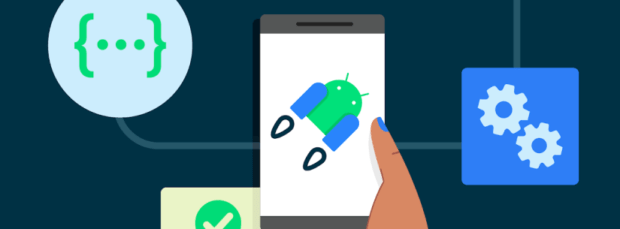The Android SDK, a Software Development Kit, is a conglomerate of instruments, libraries, and resources bestowed by Google to provide the capacity for developers to fabricate and deploy Android applications.
The Android SDK comprises all the way from the nucleus of the Android operating system to a vast gamut of tools and resources that can be utilized to design, test, and enhance apps for the Android platform. These tools and resources incorporate a code editor, a debugger, emulators, and a comprehensive array of libraries and APIs that can be exploited to engender potent and feature-rich Android apps.
While the Android SDK serves as a sound basis for app development, it can be expanded and customized to cater to the distinct requirements of singular projects. This is where the pertinence of extending the Android SDK comes to the fore. By extending the Android SDK, developers can append novel functionality, optimize performance, and engender bespoke tools and resources that can be utilized to expedite the app development process.
In this article, we will present a succinct overview of the Android SDK and delineate the importance of extending it. We will also expound upon the various categories of extensions that can be incorporated into the Android SDK, furnish examples of tailored Android SDKs, and impart best practices for using and customizing the Android SDK to fabricate top-notch Android apps.
Android SDK Architecture
The Android Software Development Kit (SDK) architecture is a multi-faceted and intricate layered architecture consisting of a quartet of fundamental components, namely the application framework, the libraries, the runtime, and the kernel.
The application framework, being the topmost layer of the Android SDK architecture, provides a comprehensive suite of Application Programming Interfaces (APIs) that developers can deftly wield effortlessly to construct and interact with Android applications. This layer’s APIs are singularly responsible for competently carrying out onerous tasks such as User Interface (UI) rendering, resource management, and inter-process communication (IPC).
The libraries component of the Android SDK architecture, being the second layer, is an extensive and pre-built compendium of libraries that proficiently provide developers with additional and intrinsic functionalities. This layer’s panoply of libraries proficiently includes, among others, networking libraries, media playback libraries, and data storage libraries that can be efficiently leveraged by developers to proficiently construct a variety of robust and dynamic Android applications.
The runtime component of the Android SDK architecture, being the third layer, consists of the Dalvik Virtual Machine, which is an adept and nimbly optimized virtual machine responsible for competently executing Android applications. The Dalvik VM is expressly optimized for mobile devices and is singularly equipped with an efficient memory management system and a judicious code execution mechanism that contributes to its effervescent vitality.

Finally, the kernel component of the Android SDK architecture is the bottommost and foundational layer, responsible for deftly managing vital system resources such as memory and Central Processing Unit (CPU) usage. This critical layer also provides an essential hardware abstraction layer that competently enables Android applications to adeptly and smoothly interact with device hardware in a standardized and consistent manner.
Overall, the Android SDK architecture is a meticulously and judiciously designed and architected platform for developers to adroitly build high-quality and impeccable Android applications. By being conversant and proficient with the constituent elements that make up the Android SDK architecture, developers can proactively make informed decisions concerning how to optimize their applications for optimal performance and unparalleled functionality. Furthermore, the seamless integration of the Android SDK into the Android Operating System (OS) ensures that applications proficiently and seamlessly interact with other system components and third-party applications, leading to a harmonious and well-orchestrated ecosystem.
Extending the Android SDK
Extending the Android SDK is a process of augmenting the existing SDK with new functionality, tools, and resources, which can be accomplished via the addition of custom code, modification of existing code, or the integration of third-party libraries and frameworks.
The advantages of extending the Android SDK are manifold, as developers can infuse fresh features and functionality into the core SDK, enhancing the performance, usability, and overall quality of Android apps. Moreover, by integrating pre-built tools and resources available through the Android SDK, developers can save substantial time and effort that can be expended on multiple projects.
Diverse types of extensions can be added to the Android SDK, including libraries, frameworks, and plugins. Libraries furnish pre-built code that can be deployed to undertake specific tasks, whereas frameworks proffer a set of tools and resources that can be utilized to construct intricate apps. In contrast, plugins endow additional functionality that can be integrated into existing tools and workflows.
To extend the Android SDK, developers must execute a sequence of steps, which entail the modification or addition of code to the existing SDK. This process encompasses downloading and installing the Android SDK, setting up a development environment, and scripting custom code or embedding third-party libraries and frameworks. Upon successful integration of custom code or libraries into the SDK, developers can leverage them to fabricate and launch robust and feature-rich Android apps.
In sum, extending the Android SDK is a fundamental component of developing top-quality Android apps. By assimilating the benefits of extending the SDK, the types of extensions that are obtainable, and the procedural steps implicated in the process, developers can exploit the entire spectrum of the functionality provided by the Android platform, culminating in apps that are both potent and user-friendly.
Customizing the Android SDK
The customization of the Android SDK, an endeavor in which developers modify the existing SDK to either append or delete features, tools, or resources, is a complex process that can prove to be quite beneficial.
The rationale behind the desire to customize the Android SDK may be multifarious. Developers may seek to append customized functionality that may be absent in the core SDK, or conversely, they may wish to excise redundant or unsuitable features that are not germane to their specific use case. Additionally, customizing the Android SDK has the potential to optimize the performance and usability of Android apps by endowing them with tailored tools and resources that cater to the specific requirements of the project.
There exist several modes through which the Android SDK may be customized, such as modifying the existing code, appending custom libraries and frameworks, or creating bespoke tools and resources. Furthermore, third-party tools and plugins may be utilized to customize the Android SDK, such as Android Studio plugins or Gradle build scripts.


When embarking on the process of customizing the Android SDK, it is crucial to adhere to best practices to ensure that the resultant modified SDK is stable, secure, and facile to maintain. This may entail the use of version control systems to track changes, comprehensive testing of the modified SDK, and the documentation of any modifications to make it more comprehensible and effortless for other developers to use.
There are numerous examples of customized Android SDKs that are in vogue currently, ranging from custom libraries and frameworks to modified versions of the core SDK. For instance, gaming companies may concoct custom SDKs that integrate tools and resources specifically crafted for building high-performance games. Simultaneously, enterprise developers may customize the SDK to append security features and integrations with third-party services.
In summation, the customization of the Android SDK is an indispensable facet of building top-notch Android apps that satisfy the specific needs of individual developers and projects. By comprehending the reasons for customizing the SDK, the methods through which it may be customized, and the best practices for accomplishing the same, developers may make the most of the Android platform to build apps that are both potent and user-friendly.
Android SDK Tools
The Android Software Development Kit (SDK) is a potent framework that comprises an extensive assortment of tools explicitly designed to aid app developers in constructing, debugging, and optimizing their apps for the Android platform.
The Android SDK tools encompass a broad spectrum of indispensable functionalities that range from the Android Debug Bridge (ADB) and the Android Emulator to the Android Asset Packaging Tool (AAPT) and the Android Virtual Device (AVD) Manager. These tools provide invaluable assistance in a myriad of app development tasks such as app building and testing, performance profiling, optimization, and management of virtual devices and emulators.
Developers need to download and install the Android SDK on their development machine to access the SDK tools via the command line or through an integrated development environment (IDE) like Android Studio.
Presently, there is a multitude of instances of Android SDK tools in use, and they all serve distinct purposes. These include various tools for app debugging, profiling, optimization, and packaging, among others. For instance, the Android Debug Bridge (ADB) permits developers to interact with Android devices and emulators from the command line, whereas the Android Emulator allows developers to test their apps on virtual devices with different configurations and settings.
To ensure that the app development process is seamless, efficient, and error-free, it is crucial to adhere to the best practices of using the Android SDK tools. This may involve utilizing version control systems to track changes, using automated build tools to streamline the development process, and conducting regular app testing and profiling to ensure optimal performance.
In summary, the Android SDK tools are an integral facet of creating top-tier Android apps that meet the specific requirements of individual developers and projects. Developers who comprehend the purpose and functionality of these tools and follow the best practices can maximize the potential of the Android platform to build robust, user-friendly, and high-performance apps.
Future of Android SDK
As the ever-evolving Android platform continues to shape-shift and progress, so too does the Android Software Development Kit (SDK). A plethora of changes and updates await developers in the coming months and years. These revisions include novel Application Programming Interfaces (APIs), cutting-edge features, and advanced tools that will effortlessly facilitate the creation of top-notch Android apps.
Notably, the impending release of Android 14, the latest version of the Android operating system, will herald a gamut of new features and improvements. These include a plethora of User Interface (UI) design elements, enhanced privacy and security mechanisms, as well as augmented performance and battery life. To be compatible with Android 14, developers will need to update their apps, requiring modifications to the Android SDK and other developmental tools.
To remain up-to-date with the fluctuations that the Android SDK undergoes, developers must regularly scrutinize release notes and updates from Google, attend various developer conferences and events, as well as participate in online forums and communities. By keeping abreast of the latest developments and modifications, developers can rest assured that their apps are optimized for the latest iterations of Android and can take advantage of the latest features and capabilities as they come to fruition.

When it comes to the future, a myriad of thrilling opportunities awaits those willing to venture forth and extend and customize the Android SDK. With the continuous expansion of the Android platform and the advent of emerging technologies like augmented reality, machine learning, and 5G, the possibilities for innovation and creativity are endless. Consequently, developers can anticipate the arrival of new APIs and tools, enabling the creation of even more sophisticated and advanced apps, alongside new prospects for integration with other platforms and technologies.
All things considered, the future of the Android SDK is exceedingly bright and rife with potential. By remaining cognizant of the latest updates and changes and leveraging new opportunities to expand and personalize the Android SDK, developers can forge ahead and create cutting-edge, top-notch apps that will push the limits of what is achievable on the Android platform.
Final Thoughts
As one draws to a close, it becomes apparent that customizing and expanding the Android SDK is an immensely potent approach to developing innovative, high-quality applications that leave their rivals in the dust. By venturing into the many tools and functionalities available within the Android SDK, developers possess the capability to create customized applications tailored to their specific necessities and requirements, providing their customers with a superlative experience.
Regardless of whether you possess an extensive track record in the realm of Android development or are merely commencing your journey, the possibilities to extend and tailor the Android SDK to your needs are virtually limitless. From designing bespoke libraries and widgets to incorporating a plethora of third-party tools and platforms, the potential for innovation and creativity is immense.
At Eventyr, we fully comprehend the significance of crafting applications of the highest caliber that cater to the current generation’s needs. That is why we proffer a wide range of services designed to assist you in bringing your ideas to fruition, encompassing bespoke Android application development and SDK expansion services. Our team of accomplished professionals is deeply committed to collaborating with you to fashion applications that fulfill your individual requirements and deliver an unparalleled user experience.
If the prospect of exploring the bounds of customizing and expanding the Android SDK has piqued your interest, we extend an invitation for you to contact us to learn more. With our expertise and extensive experience, we can help you take your application development to new heights, enabling you to create apps that soar beyond the competition in today’s dynamic marketplace.




